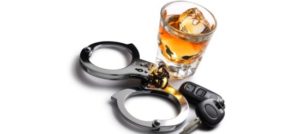If a person is arrested for DUI in VIrginia then the law compels that person to provide a breath sample to determine their Blood Alcohol level. This requirement is known as the Implied Consent Statute, or section 18.2-268.2 of the Code of Virginia (Implied Consent to post arrest testing to determine drug or alcohol content of blood).
If a person unreasonably refuses to provide a breath sample after being arrested for a DUI then they can be found to be in violation of section 18.2-268.3 of the Code of Virginia, also known as theRefusal Statute.
The procedure in the code for the Refusal statute requires the person to be informed of the Implied Consent Statute after they have refused. If they still refuse after receiving the information about the Implied Consent Statute then that person can be charged with Refusal. The information that must be given is as follows:
“(i) a person who operates a motor vehicle upon a highway in the Commonwealth is deemed thereby, as a condition of such operation, to have consented to have samples of his blood and breath taken for chemical tests to determine the alcohol or drug content of his blood, (ii) a finding of unreasonable refusal to consent may be admitted as evidence at a criminal trial, (iii) the unreasonable refusal to do so constitutes grounds for the revocation of the privilege of operating a motor vehicle upon the highways of the Commonwealth, (iv) the criminal penalty for unreasonable refusal within 10 years of a prior conviction for driving while intoxicated or unreasonable refusal is aClass 2 misdemeanor, and (v) the criminal penalty for unreasonable refusal within 10 years of any two prior convictions for driving while intoxicated or unreasonable refusal is a Class 1 misdemeanor.”
Defenses of of an alleged violation of this statute usually center on whether the refusal was reasonable or not. Many of the past cases have focused on whether the refusal was due to a physical limitation or inability to provide a sample.
The consequence for conviction of violation of this statute is that the person’s driver license is suspended for one year, with NO restricted license available during the suspension. This suspension is in addition to any suspension imposed because of conviction for DUI. The result is that if a person refuses to give a breath sample when arrested for DUI may be found guilty of refusal and lose their license for one year with no restricted license available to them. Otherwise the consequences are a civil violation (not criminal) for a first conviction, and a second or first class misdemeanor for subsequent convictions.
